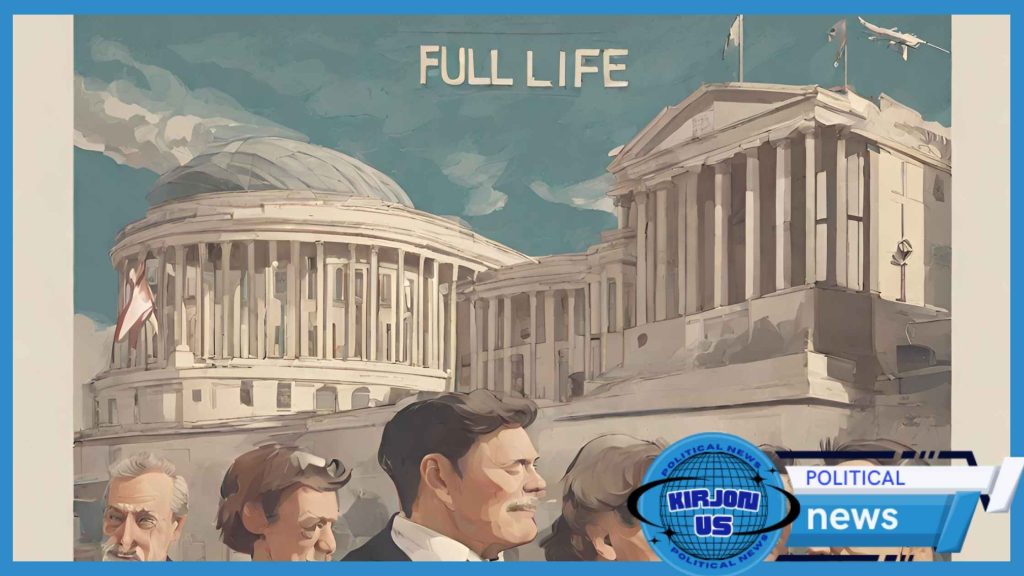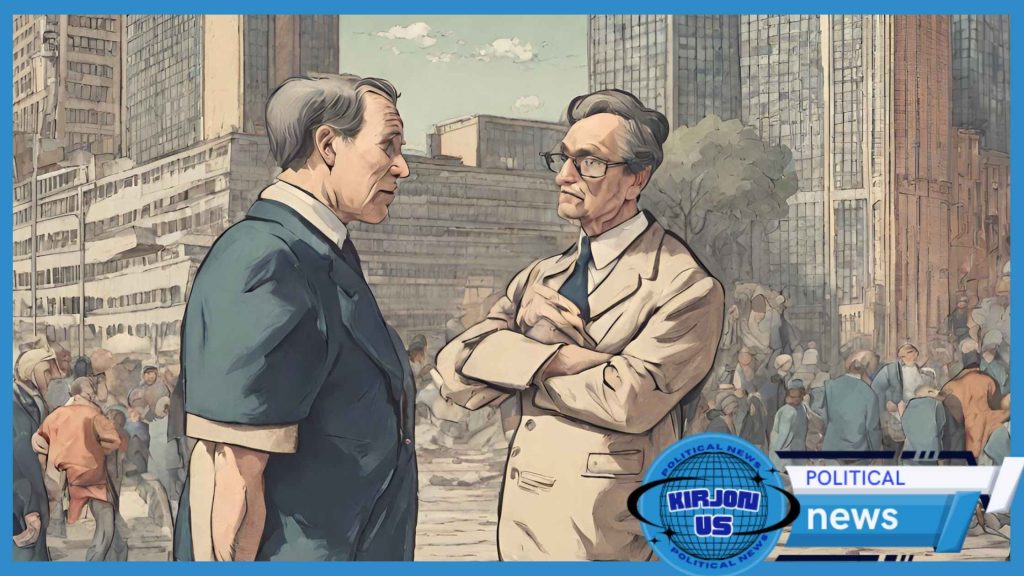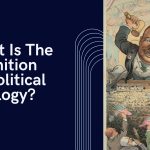Ideology in political economy is a concept that holds significant relevance in understanding the dynamics between politics and economics. It refers to a set of beliefs, values, and ideas that shape and guide political behavior, policies, and economic systems. By exploring the relationship between ideology, political beliefs, and economic theories, we gain insights into the complex interplay between politics and the economy.
An analysis of political economy requires a deep understanding of ideology, as it influences the decisions and actions taken by policymakers, governments, and societies as a whole. Political ideology encompasses a broad spectrum, ranging from conservative and liberal to socialist and libertarian. These ideologies impact policy choices, resource allocation, and the overall functioning of economic systems.
Economic theories play a crucial role in shaping political ideology in the context of political economy. Different theoretical frameworks, such as Keynesian economics and neoliberalism, inform political ideologies and guide decision-making processes. This integration of ideology and economic theories ultimately shapes government policies and forms the basis for economic systems.

By analyzing the role of ideology in political economy, we gain insights into how different ideological approaches can shape policy outcomes, economic performance, and the distribution of resources. Capitalism and socialism serve as prime examples of contrasting ideological approaches to political economy. Understanding these ideologies is essential for comprehending the dynamics between politics and economics, enabling us to make informed observations and predictions about economic outcomes and policy choices.
In conclusion, ideology in political economy is a vital aspect of understanding the interrelation between politics and economics. Analyzing the role of ideology enables us to explore the impact of political beliefs on economic systems, government policies, and the overall allocation of resources. By gaining insights into different ideological approaches, such as capitalism and socialism, we develop a comprehensive understanding of the complex dynamics between politics and the economy.
The Impact of Ideology on Economic Systems

In political economy, ideology plays a significant role in shaping economic systems. Different political ideologies, such as capitalism and socialism, have a direct impact on the structure and functioning of economies. These ideologies encompass a set of beliefs and values that guide government policies and influence economic performance and resource distribution.
Capitalism, as an ideology, promotes private ownership of resources and encourages free market competition. It emphasizes individual economic freedom and limited government intervention. In capitalist systems, the market mechanism determines prices, production, and consumption. Government policies in capitalist economies tend to prioritize deregulation and fostering an environment conducive to private enterprise and investment.
On the other hand, socialism is based on the principles of collective ownership and democratic control over resources. Socialist ideologies aim to address social inequalities and promote income redistribution. Governments in socialist systems play a more active role in economic planning and regulation, often nationalizing key industries and implementing redistributive policies to ensure social welfare and reduce wealth disparities.
These divergent ideological approaches have distinct impacts on economic systems and government policies. For instance, capitalism tends to foster innovation, entrepreneurship, and economic growth, but can also result in income inequalities and social disparities. Socialism, on the other hand, prioritizes equity and social welfare, but may limit individual economic freedom and potentially dampen incentives for innovation and entrepreneurship.
Political philosophy, which underpins these ideologies, further shapes economic systems. For example, libertarianism advocates for limited government intervention in both social and economic spheres, emphasizing personal autonomy and minimal restrictions. In contrast, social democracy combines social justice goals with a market-based economy and seeks to mitigate the negative consequences of unregulated capitalism.
Understanding the impact of ideology on economic systems is crucial for analyzing and evaluating government policies. By examining the role of political philosophy and its influence on economic structures, researchers and policymakers gain insights into how ideology shapes the distribution of resources, economic opportunities, and societal outcomes.
Conclusion
Throughout this article, we have explored the concept of ideology in political economy and its significant impact on economic systems and policies. It is crucial to understand how ideology shapes political beliefs and economic theories, as well as its influence on government policies and regulations.
A brief comparison between capitalism and socialism has been provided as examples of different ideological approaches to political economy. Capitalism promotes private ownership and free-market competition, while socialism advocates for collective ownership and a more equitable distribution of resources.
By analyzing ideology in political economy, we gain a deeper understanding of the dynamics between politics and economics. It allows us to comprehend how different ideologies influence economic systems, shape policies, and impact the overall well-being of societies.
In conclusion, the study of ideology in political economy is essential for navigating the complexities of today’s world. Understanding the contrasting viewpoints of capitalism and socialism provides valuable insights into the strengths, weaknesses, and potential consequences of different ideological approaches to governing economic systems.
FAQ
What is ideology in political economy?
Ideology in political economy refers to a set of beliefs, values, and ideas that influence how economic systems and policies are conceptualized and implemented. It encompasses political ideologies and economic theories that shape the relationship between the government, markets, and society.
Why is ideology important in political economy analysis?
Ideology is important in political economy analysis because it helps in understanding the underlying principles and assumptions that drive economic decision-making. It provides insights into how political beliefs guide policy formulation and implementation, leading to different economic outcomes and distributions of resources.
How does ideology impact economic systems?
Ideology strongly influences economic systems by shaping their structure, functioning, and policy frameworks. For example, under capitalism, there is an emphasis on private ownership and free markets, whereas socialism leans towards public ownership and government intervention. As a result, different economic systems emerge, affecting factors such as resource allocation, wealth distribution, and economic growth.
How do government policies reflect ideological beliefs?
Government policies reflect ideological beliefs by aligning with particular economic theories and political philosophies. For instance, a government influenced by neoliberal ideology may implement policies that promote deregulation and free trade, while a government with a socialist ideology might focus on wealth redistribution and strong state intervention in the economy.
Can ideology impact the performance of an economy?
Yes, ideology can impact the performance of an economy. Different ideological approaches can result in varying levels of economic growth, income inequality, and social welfare. For example, capitalist economies tend to prioritize efficiency and innovation but may also experience higher inequality. Socialist economies, on the other hand, aim for equitable wealth distribution but may face challenges in resource allocation and innovation.
How does political philosophy influence economic systems?
Political philosophy plays a significant role in influencing economic systems by providing a framework for understanding the relationship between the state, society, and markets. Philosophical approaches such as liberalism, conservatism, and Marxism offer distinct perspectives on the role of government and the distribution of power and resources, shaping the design and implementation of economic systems.
What are some examples of different ideological approaches in political economy?
Some examples of different ideological approaches in political economy include capitalism, socialism, communism, liberalism, conservatism, and libertarianism. These ideologies have different views on the role of the state, markets, property rights, and wealth distribution, which shape the economic systems and policies adopted in various countries.







